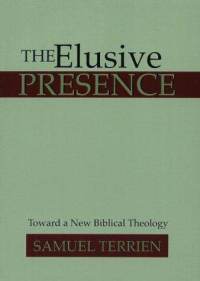 Excerpt of Covenant sections Terrien points to the differences in interpretation, worldview, and religion between Judaism and Christianity to state that the term “biblical” is ambiguous (22)1. To support this claim, he shows that national Israel herself had a diverse response to her own divine history, instead of a homogeneous understanding of the Hebrew covenant, by claiming that each new covenant in the Old Testament was a mythical re-envisioning of God's prerogatives based on outside cultural influences. Further, Terrien claims that most Hebrews did not think in terms of Covenant since the term is absent from many of the Old Testament books. Terrien tears down these other motifs and themes in order to present what he sees as the unique theology of Israel: that she maintained a theology of the elusive and unpredictable presence of God, which was free from the human techniques of ritual or moral manipulation. This understanding, was held by “a spiritual elite in her midst [that] always maintained a standard of faith” (27). This is seen in the fact that, unlike the surrounding religions where men commanded the appearance of the deity, the deity comes to man (28). Terrien sees this same presence theme carrying over to the first Christians who saw the presence of God manifested in Jesus of Nazareth. Once Christ left, the presence had to be manifested in the “indwelling spirit” or “being in Christ” (30). Terrien reveals that he believes theology is too multiplicative to be limited to literary formulation, but feels obligated to provide a biblical theological approach since the bible is the heart of both Judaism and Christianity (31). Terrien then gives a brief history of the discipline of determining biblical theologies, including and praising both those who publish them (including the works of Eichrodt, von Rad, and Bultmann) and those who question their validity in light textual criticism and the historical critical method. Terrien's point is that all of this analysis has resulted due to the focus on covenant ideology and ceremony which only played significant roles at critical moments within Israelite history (i.e. “its eschatological form at the birth of the Christian church”) instead of on Israel's “remembrance and expectation of the manifestation of the divine presence” (42). Terrien sees presence taking many shapes. Vision or auditory experience is described as the appearance or descending of a god (63). Interestingly these expressions, and others like “the face of Yahweh,” had to be used since the Biblical Hebrew lacks an abstract word meaning “presence.” Terrien expresses doubts that Abraham or the patriarchs were little more than semi-nomadic migrants and herdsmen who worshiped multiple sky deities (67-68), and believes all the “epiphanic vistations” or “theophanies” were only later ascribed to Yahweh. Though Terrien dislikes the word “theophany,” he uses it to summarize Abraham's call, covenant & visitations to stress the presence of God theme. Personal Observations – Terrien is clearly no friend of biblical inerrancy, Evangelicalism, or seemingly even the Judeo-Christian faith. Holding to the Documentary Hypothesis and an evolutionary formation of the bible, his work appeals to a highly skeptic and naturalistic worldview. Thus, most of his presuppositions drive his conclusion, making statements such as “It is probable that the traditions concerning Abraham and Lot, Isaac and Ishmael, Jacob & Esau, as well as the garland of vignettes about the twelve sons of Jacob, depict less the adventures of individuals than the tribal migrations of patronymic heroes” (66). It would seem that Terrien has replaced the God of the bible with his worship of the “presence theme” he dogmatically posits. For Terrien is perfectly content to sacrifice thousands of years of Hebrew teachings and Christian theology simply to show that by doing so the “development assumes a particular importance for the study of the origins of the Hebraic theology of presence” (67). Yet, even Terrien, in his mission to leave his personal mark on religious studies, cannot deny the mission of God clearly established with a command to Abraham to “be a blessing!” To accommodate it he eisegetes in the modern concept of world peace and multicultural equality to say “the mission of Israel in history was to effect a reconciliation among all the families of the earth” (75). Yet if Terrien simply added “to God” at the end of his phrase, he'd have nailed the Old Testament's true meaning.
0 Comments
Leave a Reply. |
AuthorBrett Yardley: Categories
All
Archives
January 2019
|

